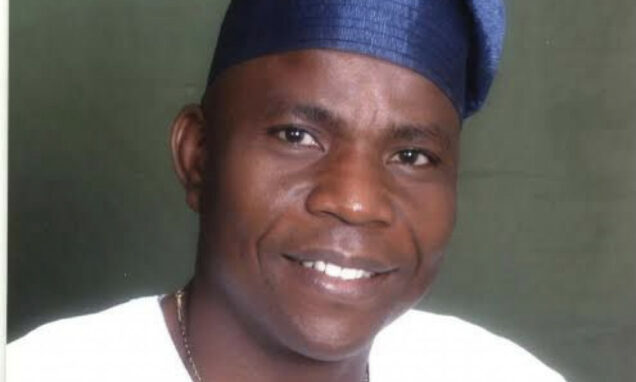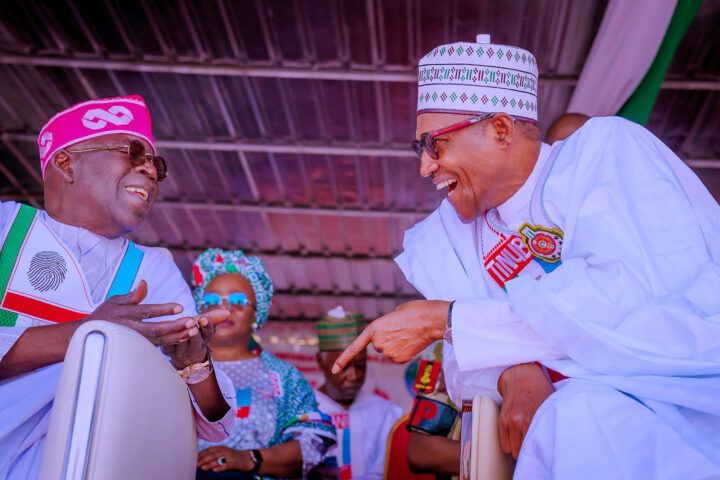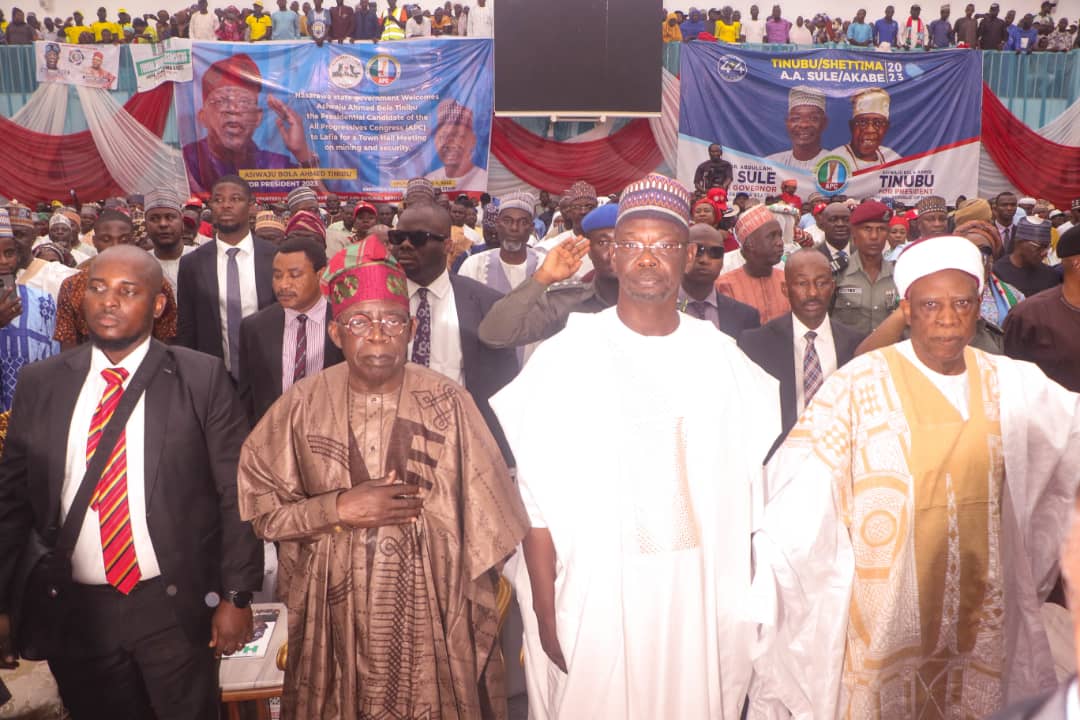Opinions
Buhari: How the Elite Holds Nigeria for Selfish Interest
I have heard and read about Elite Consensus and how it has been used at different epochs from time immemorial to save a society.
In many countries of the world, the elite across the divides have had to work to change course of history and fortune of their nations for good. In South Africa, it was the elite Consensus that ended apartheid in 1990. It was elite consensus that ended slave trade and colonialism at different times in history.
Barack Obama’s Presidency was made possible in America in 2008 because the elite in America decided to bring closure to long history of racial discrimination against the blacks. Germany reunification and tearing down of the Berlin Wall in 1989 was an outcome of elite consensus to apply a break and recreate a nation. Rwanda, the poster child of development in Africa is making steady progress because her own elite decided to chart a progressive path different from the ruinous Genocidal path of 1994.
Sadly, Nigeria does not have elites who can unite and put all differences aside for the love of their country and for higher purpose national objective. The Nigerian elite is all about the pernicious pursuit of personal and group interests across social, economic, ethnic, political and religious spectrums.
Three distinguished Nigerians, in their books, addressed this issue. Ambassador Olusola Sanu, in Audacity On The Bound, A Diplomatic Odyssey, touched on elite conspiracy against Nigeria in cahoots with foreign interests.
Bishop Mattew Hassan Kukah in his book, Witness To Justice, brought a fresh perspective to the political and economic order in Nigeria, social justice, especially, in matters of Ogoni, Niger-Delta and other stressed points. Bishop Kukah recasts the Ogoni crisis in different light and at the end of the day, Ken Saro Wiwa did not smell nice at all. He was in real sense not the Hero and Saint the Civil Society, Human Rights Communities, the media – both local and foreign projected him to be.
General Ibrahim Babangida, commissioned a Venerable Journalist, Dan Agbese to write his Biography. In ‘Ibrahim Babangida: The Military, Politics and Power in Nigeria’, Dan Agbese was very unflattering. He was very penetrating and piercing in his revelation of the Babangida administration and the underbelly of the elite’s gang rape of mother Nigeria.
Agbese was very instructive in his construction of the way the elite operates in Nigeria from 1960 till date. Same pattern. Same entrenched interests control the civil society, media, Academia, religion and ethnic cleavages. All the elite cares about is their economic interest and they will bring down any government that moves against their economic interests.
By the time Buhari took over on December 31, 1983, Nigeria had a Foreign Reserves that could not fund one week import. The country was defaulting in paying its foreign creditors. Letters of Credit from Nigeria were no longer accepted abroad. Shagari administration had crashed the country. Factories were closing down due to lack of raw materials and spare parts importation. Shagari was negotiating IMF Bailout Loan with all the conditionalities and was about signing when the Military sacked him. Buhari inherited the mess and got himself with his team immersed in cleaning the Augean Stable.
The Buhari administration was clear on its objectives. The business and political elites excesses and waywardness that crashed the country in 4years under Shagari will be tamed. All their enabling sub and super structures in Trade Union, Media, Traditional, Religion and ethnic constructs will not be tolerated. No distraction from these quarters will be allowed according to Buhari. He set to work.
First, the Buhari administration rejected IMF loan and all the conditionalities Shagari was ready to sign. The administration had solid Cabinet with men like Professor Gambari, Professor David-West, Dr. Onaolapo Soleye as the Finance Minister among others. To avert total shut down of the economy, the government introduced Counter Trading with key Trading partners. Since Nigeria does not have Foreign Reserves to finance importation of Raw materials and other essential commodities, Nigeria will give crude oil to certain trading partners and they will give Nigeria identified industrial raw materials, industrial machines, spare parts and other commodities. Manufacturers Association of Nigeria and Organised Private Sector players will tell government all they need. Government will then do counter trading to get them. It was a measure to solve a chronic economic problem instead of IMF loan.
The administration promulgated Decree 2 to regulate the press and also Drug Trafficking Decree with death penalty. Within 3 months, the elite saw that Buhari administration will not play ball. They were set to replace it. They started using Trade Union especially ASUU, NBA, NMA, Media, CAN etc to mount campaign against the administration and all the policies. It didn’t matter that the Buhari administration was paying off the debt and obligations he inherited from Shagari’s administration. It didn’t matter the administration was given monthly update and briefing on the state of the economy. The Media and Civil Society were unleashed against the administration that was resetting the country.
According to Agbase in IBB’s Biography, everything the media, civil society, the business class, NLC, CAN, ASUU, NBA, used against the Buhari Military administration, IBB did worse yet no whimper from same set of people and groups. Within 20 months, sufficient damage had been done to the Buhari administration and the populace had been turned against the government. It was designed by the elite as a pretext for the IBB Coup in 1985.
Ambassador Sanu wrote how as Nigeria’s Ambassador to United States, dubious American business men will fly into Lagos and got mouth-watering deals in collaboration with local business men/women and politicians. Even the basic check with the Mission in Washington to run a check on these companies to be sure of their provenance would be ignored just because of personal interest of individuals. The country was committed and paid millions of dollars in many dubious transactions.
IBB came to a rapturous public eureka! Nigerians have seen the end of an unsmiling and ‘wicked’ Buhari and Idiagbon. Welcome to a new Nigeria.
First, IBB spurned the title of Head of State which previous military rulers from Gen. Aguiyi Ironsi used. He called himself President. He repealed Decree 2 to seduce the media and abolished the Anti drug trafficking Decree to get public applause.
One of the main reasons for IBB’s move against Buhari according to Agbase in the Biography was the Counter Trade Policy. IBB and his boys in the Military felt Buhari and Idiagbon and some people were making so much money from the deal without them. They have got some Economic experts to discredit the policy when Buhari was Head of State.
On assumption of power, IBB investigated the Counter Trade Policy and saw that Buhari and Idiagbon didnt make a kobo and didnt do any deal for personal interest. It was the best policy to do to avert a total collapse of the country. IBB continued with Counter Trade Policy and everyone that was against it under Buhari suddenly kept quite under IBB. IBB promulgated a worse Decree against the Media. Journalists, Editors and Publishers that were against Decree 2 under Buhari didnt make the kind of noise they made with Decree 2.
Nigeria was to join Organisation of Islamic Countries (OIC) in 1984 if Shagari government was not overthrown. Buhari cancelled it and IBB took the country to OIC.
Agbase wrote that IBB did many and more things Nigerians were made to complain against under Buhari.That is how the elite operates. They manipulate public opinion against any government using the Media, religion, ethnicity, Academia and so-called experts. It is what Simon Kolawole called ‘Elite Hegemony’ in his recent Thisday Backpage Column.
It is same pattern and methods that have been deployed against Buhari in his second coming since 2015. Every inherited problems have been turned to his making. Like 1984, he met practically empty treasury in 2015. Like 1984 States were owing months of unpaid salaries and pensions including the Federal Government in 2015. Like 1984 we have acquired lifestyles and tastes such that by May 2015 Nigeria’s Foreign Reserves could not fund 3 months imports. CAN didnt turn herdsmen/Farmers clashes to Islamisation and fulanisation agenda when it was worse than it is now between 2010-2014 because a supposed Christian, Goodluck Jonathan was President. If i didn’t live in Nigeria from 1999 till date i would think herdsmen and farmers problem started in 2015.
As President Buhari prepares for his second tenure, he owes it to himself and future generation to ensure he sees to the end many of his good programmes and policies in areas of revamping critical infrastructure, deepen industrialisation and continue with programmes to diversify the economy. This, he will be able to do with smarter Cabinet and Advisers than the outgoing cabinet. The Vice President, Professor Yemi Osinbajo said the Federal Government will focus more on education in the second tenure by working more with the States. Minister of Education, Mallam Adamu Adamu announced earlier this week that National Secondary School Commission will be created. I don’t know how this will help education and if it wont be another bureaucracy. Whichever way, education should get better attention at Primary and Secondary levels in Buhari’s second term in office.
Temitope Ajayi can be reached via Topecarter@yahoo.co.uk






